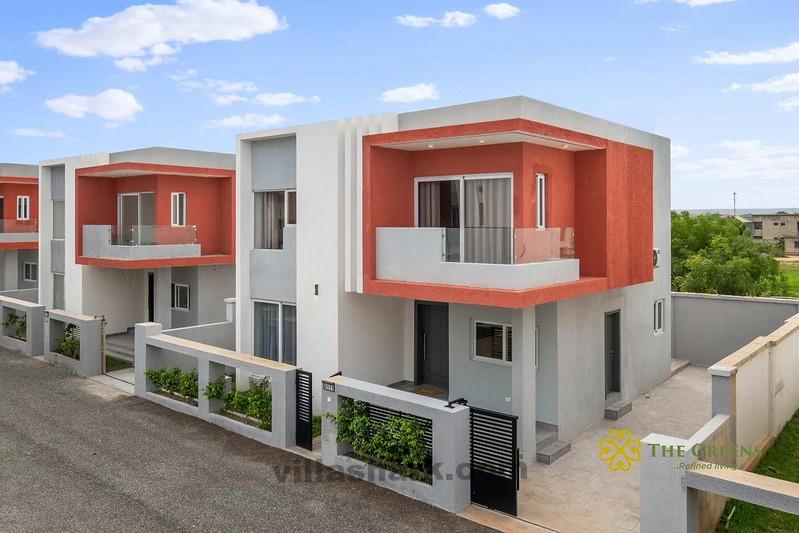
Before buying a residential or commercial property in the UK, comprehending the kind of residential or commercial property ownership - whether it's freehold or leasehold - is very important. These terms might seem like legal jargon, however they can impact your duties, costs and long-term strategies.
In this guide, we'll look into the fundamentals of freehold and leasehold residential or commercial properties, so you don't need to. We'll check out everything from what they imply, their benefits to how they differ in terms of costs, resale value and legalities.
What is a freehold?
In easy terms, if you own a residential or commercial property on a freehold basis, you own the building and the land it rests on. There's no time at all limitation on your ownership, and it's all yours.
Responsibilities of a freeholder
Being a freeholder comes with exciting perks! You're basically the captain of your residential or commercial property ship which indicates you are accountable for the maintenance of the residential or commercial property and the land. You likewise have the flexibility to make upgrades to your pad without needing approval from a landlord. It's your space to shine!

What is a leasehold?
Having a leasehold indicates you own the residential or commercial property but not the land it's developed on. You have a lease with the freeholder (normally a 'landlord') for a number of years, decades or even centuries. The length of the lease is essential, as it can affect your capability to offer the residential or commercial property in the future.
Responsibilities of a leaseholder
As a leaseholder, you might have to pay ground lease to the freeholder, as well as other charges like service charge for upkeep of common locations. You might be restricted in what changes you can make to your home.
Kinds of leasehold residential or commercial properties
Typically, flats and maisonettes are offered as leasehold residential or commercial properties. Some homes can likewise be leasehold, usually through shared ownership schemes. But make sure to inspect the length of the lease when considering these kinds of residential or commercial properties.
Differences between freehold and leasehold
Ownership of land - in freehold, you own the land, whereas in leasehold, the land comes from somebody else. This distinction is among the primary distinctions and typically a game-changer for many homebuyers.
Duration of ownership - think of freehold ownership as an endless adventure; it continues. But when you go for a leasehold, it's more like a Netflix membership; you have actually got it for a particular time, which will be defined in your lease arrangement.
Costs included - leasehold homes typically come with extra expenses, like service fee and ground lease. These can be things like recurring costs that pop up each year or bi-annually. It's possible that they may even slip up with time.
Resale worth - a freehold residential or commercial property usually has a greater resale value compared to a leasehold with a short lease. The shorter the lease, the more tough it might be to offer the residential or commercial property or secure a mortgage.
Buying a freehold share
If you're a leaseholder, you have the alternative to buy a share of the freehold. This procedure is known as 'enfranchisement' and it implies you have more control over the residential or commercial property.
Bear in mind - you'll need at least half of the leaseholders in the building to accept purchase a share. This can be an intricate procedure including legal costs, so it's vital to consult with the experts.
Alternative alternatives: commonhold residential or commercial properties
Ever heard of commonhold? It's a kind of residential or commercial property ownership where you and your fellow house owners each own your own little piece of the pie, which might be a cosy flat in a building for instance. The only difference here is that you all come together as a group to own and look after the shared areas.

Think about it as a more democratic lifestyle. And guess what? There's no proprietor in the picture! It's everything about property owners interacting to keep things running efficiently. This concept is relatively new in the UK, but it's selecting up steam bit by bit.
Extending the lease on a leasehold residential or commercial property
If you own a leasehold residential or commercial property, you can extend the lease at any time. However, when you have actually owned your home for two years, you have the legal right to extend your lease by 90 years. The expense for this can differ and goes through negotiation with the freeholder.
It is necessary to begin this procedure well before your lease goes out to avoid any problems or greater expenses.
Should I buy a leasehold or freehold residential or commercial property?
So, now that you understand the difference between freehold and leasehold residential or commercial properties when buying a home in the UK - which one is the one for you? Let's take an appearance at some of the main pros and cons to get a much better image.
Advantages of owning a freehold residential or commercial property
No lease to run out: one of the most substantial benefits is that you do not need to stress about the lease going out, as you own the residential or commercial property outright.
No ground lease or service fee: freeholders do not need to pay additional expenses like ground lease or service charges, which can build up gradually.
Full control: you have total control over the residential or commercial property, permitting you to make any changes or enhancements without needing approval.
Potentially simpler resale: In most cases, it's much easier to offer a freehold as there is no lease that can affect asking cost and mortgage rates.

Disadvantages of owning a freehold residential or commercial property
Typically more expensive: as you're buying the entire bundle, freeholds are generally more expensive than leaseholds to buy.
More duty: When you're the freeholder, you're accountable for any maintenance or development costs for the residential or commercial property.
Advantages of owning a leasehold residential or commercial property
Typically more affordable: You'll discover that freehold residential or commercial properties are normally more affordable to buy than leasehold residential or commercial properties.
No responsibility for maintenance of the building: General maintenance is the responsibility of the freeholder.
No responsibility for maintenance of common centers: Any work required for the common facilities falls within the obligation of the freeholder.
Disadvantages of owning a leasehold residential or commercial property
Limited ownership: As a leaseholder, you do not have the same ownership rights and options as the freeholder. You're efficiently renting from them.
Lease can diminish: While lots of leases are long, it's possible for them to run down. They can be renewed, however at an additional cost.
May need to pay ground lease and service charge: You may require to pay the freeholder added fees as a leaseholder.
Require approval to make modifications: As a leaseholder, you may need to look for the written authorization of the freeholder before making modifications to the residential or commercial property.
Can be more difficult to sell: Generally speaking, the closer a leasehold is to diminishing, the more challenging a sale can be for a leaseholder.
While both have their pros and cons, think about the truth that your choice will depend upon your long-lasting strategies, financial situation and the kind of residential or commercial property you've got your eyes on. It's constantly smart to get assistance from legal advisors and the residential or commercial property pros so that you can be positive you've made the most intelligent decision.









